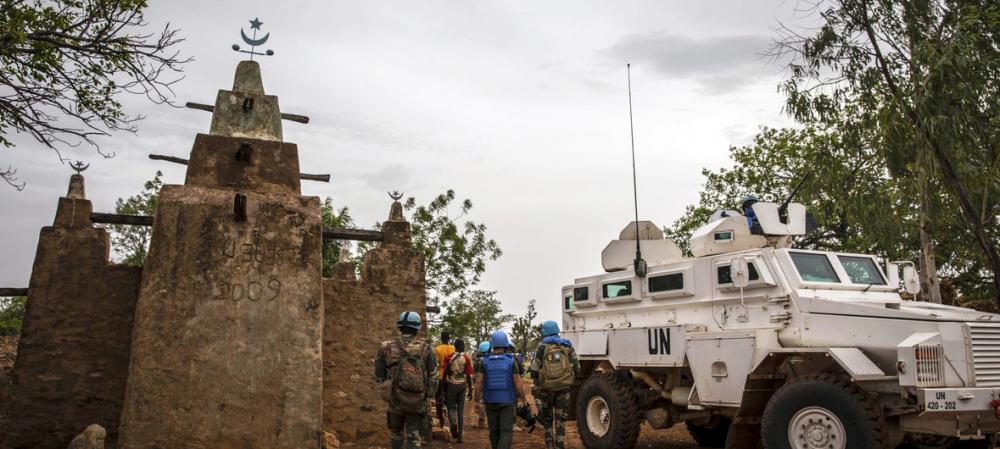Just Earth News | @justearthnews | 09 Oct 2019, 06:18 am Print

New York: Some progress has been made towards restoring peace and stability in Mali as outlined in a fragile 2015 peace deal, yet sustainable peace developments are not happening fast enough, the Security Council heard on Tuesday.
Briefing on the Secretary-General’s latest report via videoconference from the capital Bamako, Mahamat Saleh Annadif, Special Representative and head of the UN Mission to the country (MINUSMA), said that while accounts of violence continue to surge, some efforts to accelerate disarmament, demobilization, and reintegration (DDR), as set out in the 2015 Agreement on Peace and Reconciliation in Mali, have proved fruitful.
“The report under your consideration is being presented at a time, when latest developments from Mali are not very encouraging”, Mr. Saleh Annadif lamented, citing attacks near the Burkina Faso border last week, and the death of a MINUSMA ‘blue helmet’ and wounding of another, just 48 hours ago.
“In spite of these repeated attacks committed by enemies of peace, significant strides forward have been achieved in implementing the agreement, in particular as far as the political and institutional reform are concerned, security issues and matters of socioeconomic development”, he said.
Malian authorities and two coalitions of armed groups, signed the Agreement on Peace and Reconciliation in Mali three years ago in an effort to stabilize the country, following violent clashes, and a failed coup by extremists, three years prior. Since 2013, nearly 200 peacekeepers have been killed, making MINUSMA the deadliest UN mission in the world.
According to the UN, the security situation has deteriorated significantly in recent years, in particular, ongoing conflicts in the North have spread to the country’s centre, with increases in incidents of kidnapping, and assassinations of civilians as well as parties to the peace agreement.
When it comes to central Mali, the MINUSMA chief called for a greater presence of security and defense forces, which is seeing its highest number of Internally Displaced Persons (IDPs) since 2015.
Acknowledging the continuing instability, Security Council resolution (2480) which extended MINUSMA’s mandate through June 2020, also adopted a strategy specifically aimed at protecting civilians in the region.
National dialogue ‘an important step forward’
In late September, President Ibrahim Boubacar Keïta told the UN General Assembly that Mali would prepare to hold a national dialogue to prompt reconciliations and strengthening of democracy, which Mr. Saleh Annadif confirmed, got underway on Monday 7 October.
The national discussions are meant to address the root causes of the country’s political and social upheavals and serve as an opportunity for Malians to talk to one another and be included in the peace process, which have already begun at the local level.
“We can really congratulate the Malian political class and civil society for this very important step forward,” he said, urging for an appeal for political actors to take part in the debate, in order to ensure inclusive participation in the peace dialogue.
Looking forward, the peace dialogue is expected to expand to the regional level by the end of the month. In addition, Mr. Saleh Annadif shared that MINUSMA and UN Women will support a November workshop on the inclusion of women in the peace process, also in line with resolution 2480.
Photo caption and credit:
MINUSMA/Gema Cortes
UN peacekeepers from Senegal patrol the town of Mopti in central Mali. (July 2019)
- Trump signs 10% global tariff, says it takes effect ‘almost immediately’
- BJP wins a seat in Bangladesh — But not the one you think!
- Meet Shabana Mahmood: Could she take over as UK’s first Pakistani-origin Muslim PM?
- Dalai Lama's Office breaks silence on Epstein claims
- Russia says suspect in shooting of GRU Deputy detained in Dubai





-1763561110.jpg)
